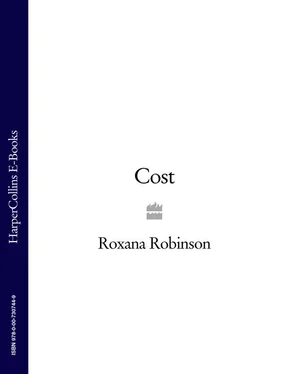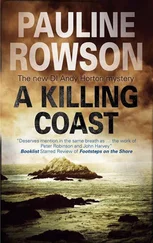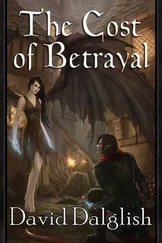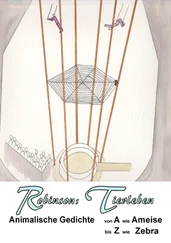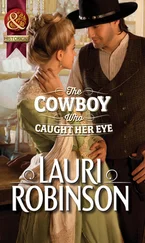When Edward had done his training, the treatment of mental illness was almost entirely physical. Little had changed since the Middle Ages, though during the twentieth century there were experiments with insulin, horse serum, electric shock. One surgeon took out women's reproductive organs, claiming he'd eliminate madness in the next generation. Nothing had really been successful, and by the late forties the public hospitals were still using isolation and restraint. Locked wards and straitjackets were pretty much all they'd had.
After the war, thousands of soldiers came home traumatized by battle, psychologically incapacitated. The country was unprepared and the health-care system swamped. Mental patients occupied one out of two hospital beds in the country. Hospitals were overwhelmed, understaffed, and underfunded. In the V.A.s, the ration was one staff member for every two hundred patients. Mental health was a national crisis.
It was a crisis and became a scandal. There were exposés, grim photographs in Life magazine. Images of hell: crowds of naked patients in straitjackets sitting on the floor in bare rooms. These were our brave boys come home, and this was how we treated them. The government called for investigations, medical science called for a cure. Edward's field was galvanized with urgency.
Psychosurgery was the answer. Edward remembered the first time he'd heard the term “leucotomy”—at a staff meeting, everyone's face solemn. It was a new procedure, the severing of connections between the frontal lobe and the rest of the brain. A Portuguese doctor, Moniz, had invented it, and an American, Walter Freeman, brought it here. It seemed to be the answer to mental illness.
Freeman's operation was simple and swift, and the VA. embraced it. This was the answer to those hordes of desperate, hopeless patients. This was the silver bullet, modern, scientific, and humane. There were federal grants and public funding, a health initiative. Forty or fifty thousand operations were performed across the country. The symptoms were gone, and the brave boys went home to their families. It wasn't just soldiers: the procedure seemed to work on all mental patients. It was a miracle. The national emergency had been resolved. It was a triumph for his field. Edward had been right in the middle of it.
A few years later, when psychotropic drugs emerged, treatment shifted toward medication, psychopharmacology Edward shifted, too, away from mental illness, toward other pathologies. He wanted to perform surgery, not write prescriptions. For the next forty years he addressed neurological disorders, physical malfunctions within the nervous system. He became an expert on certain procedures.
The sunlight here was dazzlingly bright, and the long grass hissed mildly in the wind. It reminded Edward of Cape Cod, his parents' house, the old saltbox on a low rise among the cranberry bogs. Those runty scrub pines, stunted by the wind. The air there smelled of the pines, and of the sweet, tangy bayberry; even, faintly, of salt, though the house was several miles from the beach.
Here, salt was heavy in the air, drifting up from the shore. The tides were high—he liked that about Maine, the great sweeping shifts of its waters, the brimming heights, the draining lows. The brutal iciness of the sea, closing like a fist around your heart. You couldn't swim here, there was no thought of it.
He'd never see the Cape house again. When Katharine could no longer manage the steep slope of the lawn, they'd stopped going there. Rather than leave it in his estate to be taxed, he'd asked Harriet if she'd like it, she'd always used it the most. He'd never thought to ask her to keep it, and two years after he gave it to her, she sold it to a developer.
It still made him angry, he felt it now in his throat. When he found out about it, Harriet told him coldly that she'd had no choice. She couldn't afford the taxes and the maintenance. She wasn't using it much, and she needed the money to start her practice. But if she'd only told him, of course he'd have paid the taxes.
Edward didn't want to see it now, crowded by other buildings, the bogs drained. He wanted to hold it in his mind as he'd known it, on its small hill, the old silvery-barked cedar trees on the front lawn, the high thick tangle of wild sweet pea and honeysuckle cascading down the hill behind it.
In the pond were snapping turtles. Once, when he was rowing across it, a turtle had clamped itself invisibly onto the oar, hanging on. He'd been small, only eight or nine. He remembered the sudden inexplicable weight, like a spell cast on the left oar. The smell of the flat green water, the stand of pines on the far hillside: mornings in that house had been pure and blue, silent and untouched. His father, in white duck trousers and faded blue sneakers, walking back and forth on the wiry grass, spreading the sails out to dry. Edward helped, tugging the heavy canvas from its damp folds.
No, he didn't want to see the place again. It was safe in his memory. Did it matter if it existed nowhere but in his mind? His memory seemed a better and better place to live. As he grew older, what was stored there grew more and more different from the world around him. The worlds diverged— did it matter? He wondered how Julia's sons were doing.
“Now, tell us, how are the children?” Katharine asked.
Edward thought, confused, that she'd just asked that question. Or had he just asked it? He looked sideways at Julia, to see if Katharine had repeated herself. Julia wouldn't say so, but her voice would be slow and patient. Edward hated people being patient with him, it was so patronizing.
“The boys are both fine,” Julia said, frowning, looking out over the pink grass.
Julia wouldn't say if they weren't. She never did, though Edward knew things had been pretty bad at times. Both with the children and her divorce: she led a chaotic life, as far as he could tell. She never talked about it. I'm fine , she always said forbiddingly. She wanted privacy, he understood that. He didn't want to know everything, either. Hearing about other people's lives was either tedious or frustrating, they made so many mistakes. Katharine, of course, heard all those things; she was interested.
Edward had disapproved of Julia's divorce. He didn't know why Wendell had left Julia, and he supposed no one would ever tell him. Wendell was married now to someone else, so it had probably been woman trouble. Of course you had these urges, everyone did, but you didn't leave your wife. People were so ready now to give up, throw everything away, but divorce was the solution to nothing. It made everything worse, usually. Look at Wendell, off with some inferior woman, Julia on her own now. For good, probably, her face turning lined and leathery.
He'd never wanted to divorce Katharine, though he'd been interested in other women. He'd had flings. But he'd never have left her. His marriage was part of himself, like being a surgeon. Each day he had waked up married to Katharine, and a surgeon.
Surgery had been the thing, the center of everything. The operations he'd performed were still part of his consciousness. He could go through each step of each one. They were like the house on the Cape— still there, still real, ready for him to inhabit.
Surgery had been his life. He'd done thousands of operations, over nearly four decades. It had engaged him utterly, it had given him his greatest pleasure. There was nothing more serious, more crucial, more delicate. He'd welcomed the challenges. He'd welcomed risk—he liked it—and often taking a risk was the right thing to do. He'd been good and he'd been lucky, and he'd been rewarded for both. Young doctors came to train with him, he'd been twice head of the National Association of Neurosurgeons, which he'd helped found. Surgery had been his life, a continuing challenge, one he always rose to. It had been intoxicating: the excitement, the urgency, the thrill of commencement.
Читать дальше
